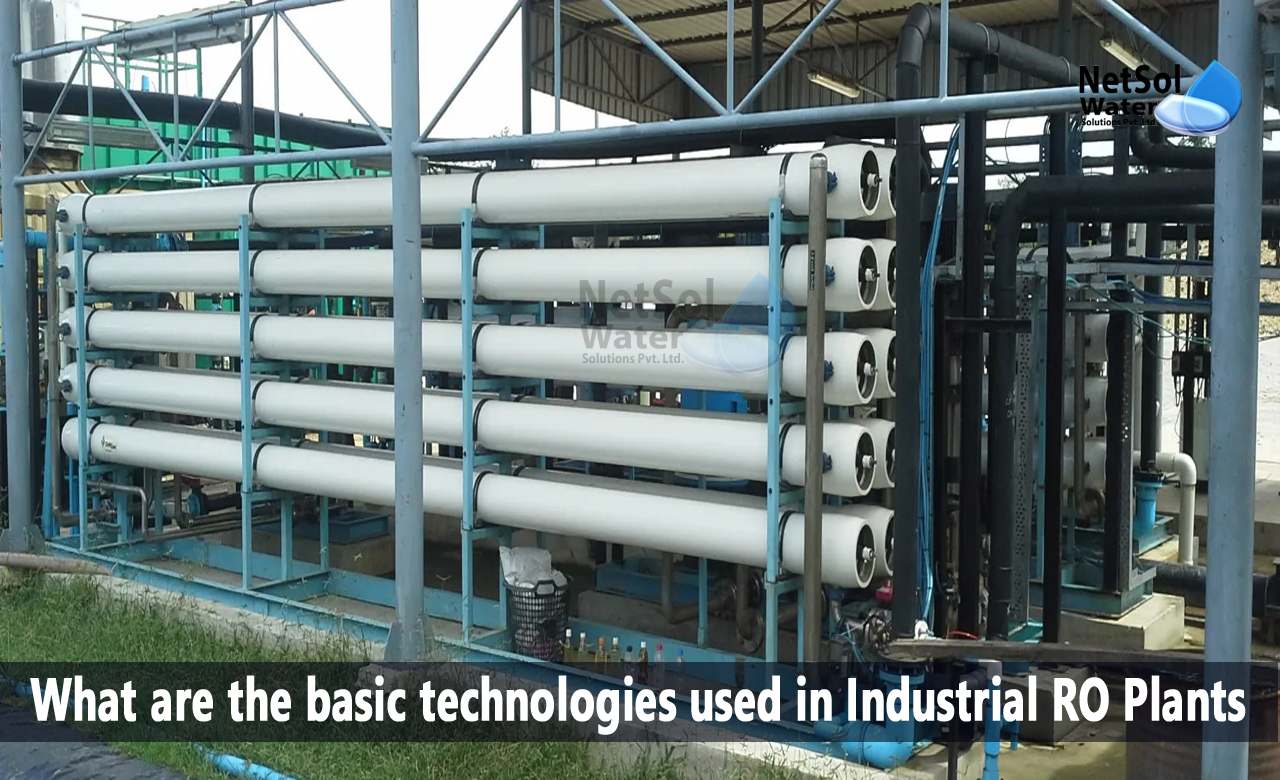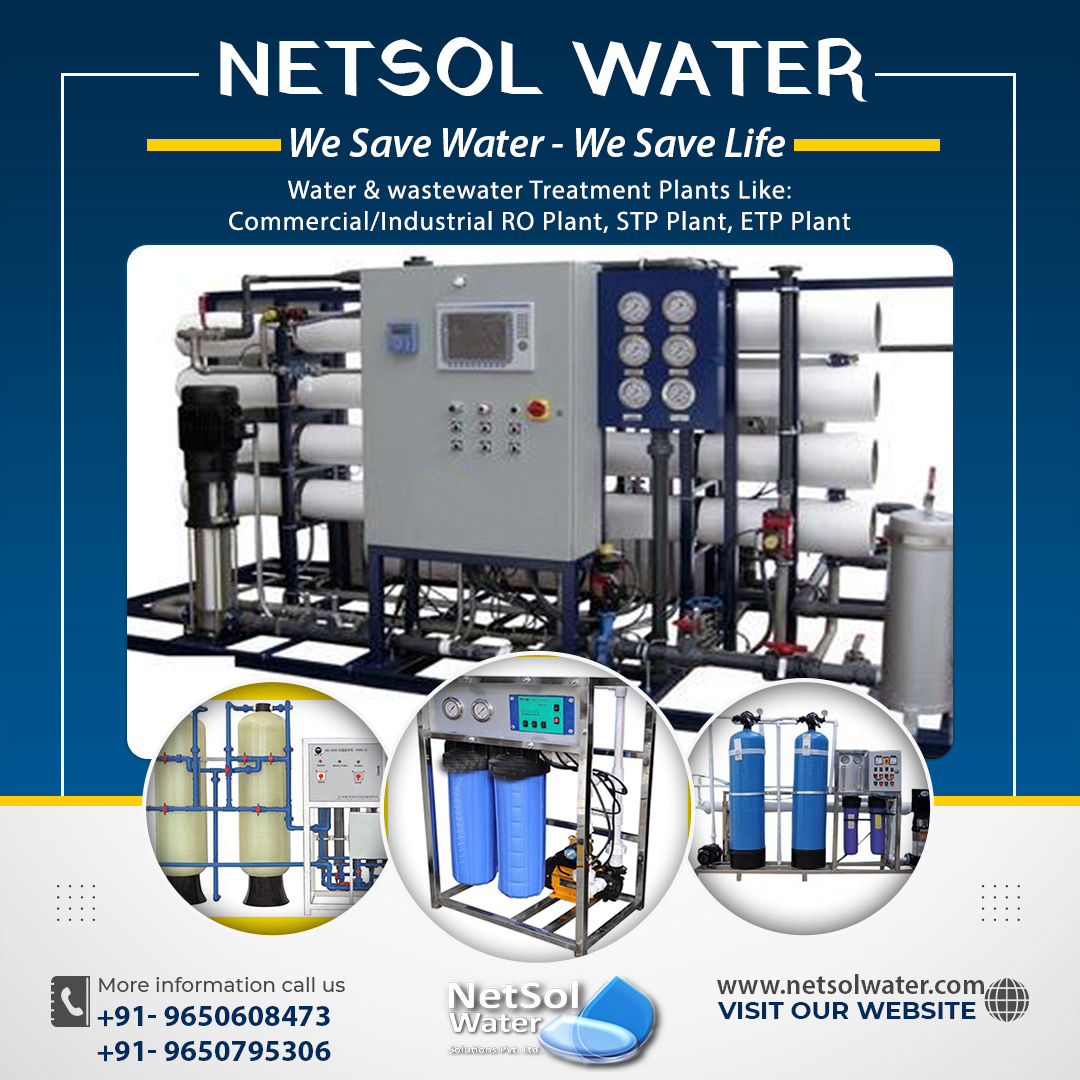Industrial RO plants are a revolutionary technology that has proven to be beneficial to industrialists, by providing clean and purified water that can be used for both production and consumption.
They are highly recommended because they effectively remove up to 99% of dissolved solids, contaminants, or impurities from water, resulting in safe, pure, and clean water.
What are the basic technologies used in Industrial RO Plants?
The following are the various technologies that use RO technology to direct the treatment process:
Membrane Filtration:There are two types of membrane filters: low-pressure membrane filters and high-pressure membrane filters.
The operating pressures of the filters differ, and examples for the former include microfiltration and ultrafiltration, while examples of the latter include reverse osmosis and nanofiltration.
· Low-pressure membranes:These filters are used to clean the water's surface. Compared to traditional methods, the filter has several advantages. These include low chemical usage, no product disinfection, and the elimination of turbidity, among other things. They are, however, effective at removing dissolved organic matter.
· High pressure membrane: This technology includes reverse osmosis and nanofiltration. The membranes used in this technology are specifically designed because, size is an important factor in the cleaning process.
Reverse osmosis membranes are effective at removing color, and are highly regarded for their disinfection capabilities. RO membranes have been widely used in seawater desalination. These membranes are capable of removing 99% of the dissolved solids in water.
Two stage membrane filtrat?ion: The series combination of two membranes results in two stage membrane filtration. These are effective at removing all dissolved matter (organics and inorganics). Combinations include microfiltration followed by ultrafiltration or nanofiltration, followed by reverse osmosis. The main priority here is to overcome the cost.
Ultraviolet radiation Technology: This technology has primarily been used to disinfect domestic and industrial water and wastewater. The germicidal effect of UV rays is well understood. The wavelength is between 250 and 270 nanometres. The process has also been scaled up to large treatment units.
Advanced oxidation technology: This is a process that defines hydroxide radicals and aids in the degradation of organic and inorganic water impurities.
Ozone: Ozone water treatment works by dissolving ozone in water and allowing bacteria, and other waterborne pathogens to oxidize. Although, electrolytic and chemical reactions can produce ozone, UV and electrical ozone generators are the most commonly used for water treatment.
Ozone has been widely used because the process is effective at removing color, controlling taste and odour, and disinfecting. The residual effect is poor, but the technology is beneficial when combined with a reverse osmosis unit.
What are the advantages of Industrial RO Plants?
- It is easy to install and service.
- Reverse osmosis is reliable.
- It removes ionic salts, non-ionic salts, colloidal matter, as well as high molecular weight organic matter.
- It is a fully automatic system.
- The water retrieved from the plant is safe to drink.
Conclusion
Industrial RO Water Plant is a high-tech manufacturing plant for purifying contaminated water, which is suitable for a variety of industrial applications that require desalinated water. Proper plant monitoring and maintenance are essential to avoid costly repairs, and uncertain maintenance, and to provide many years of high-purity water.
Other technologies that have been developed or are currently being developed are usually a combination of these. Ion exchange technology, UV with hydrogen peroxide, and ozone with hydrogen peroxide are among the options.
Industrial RO Plant manufacturers
Netsol Water tailors each system to the needs of its customers, with each unit designed and built to order.
Still unsure whether reverse osmosis is the best solution for your business? The first step is to assess the quality of your raw water and the amount of water you require. We offer a free water analysis test to help you with this procedure.




